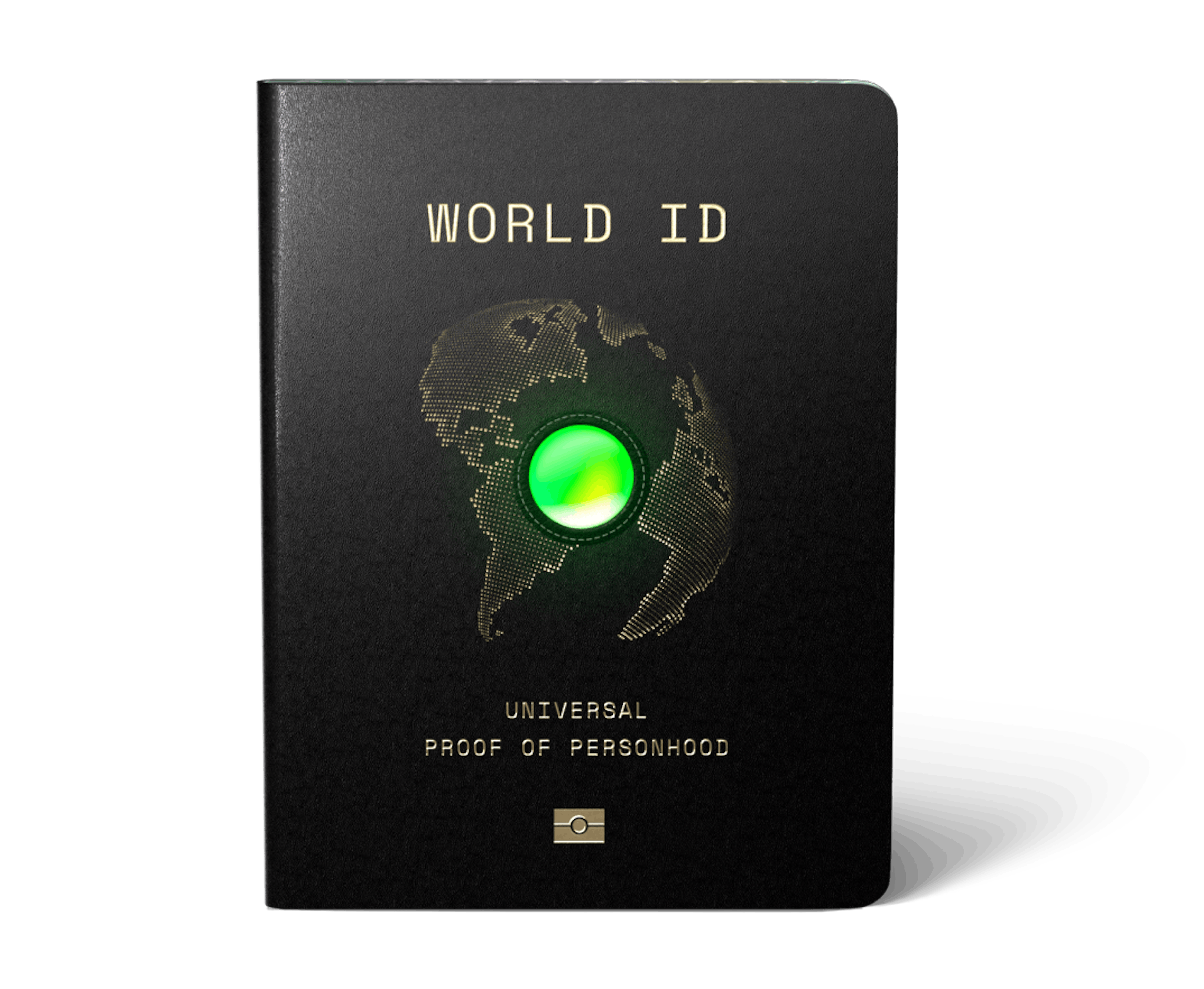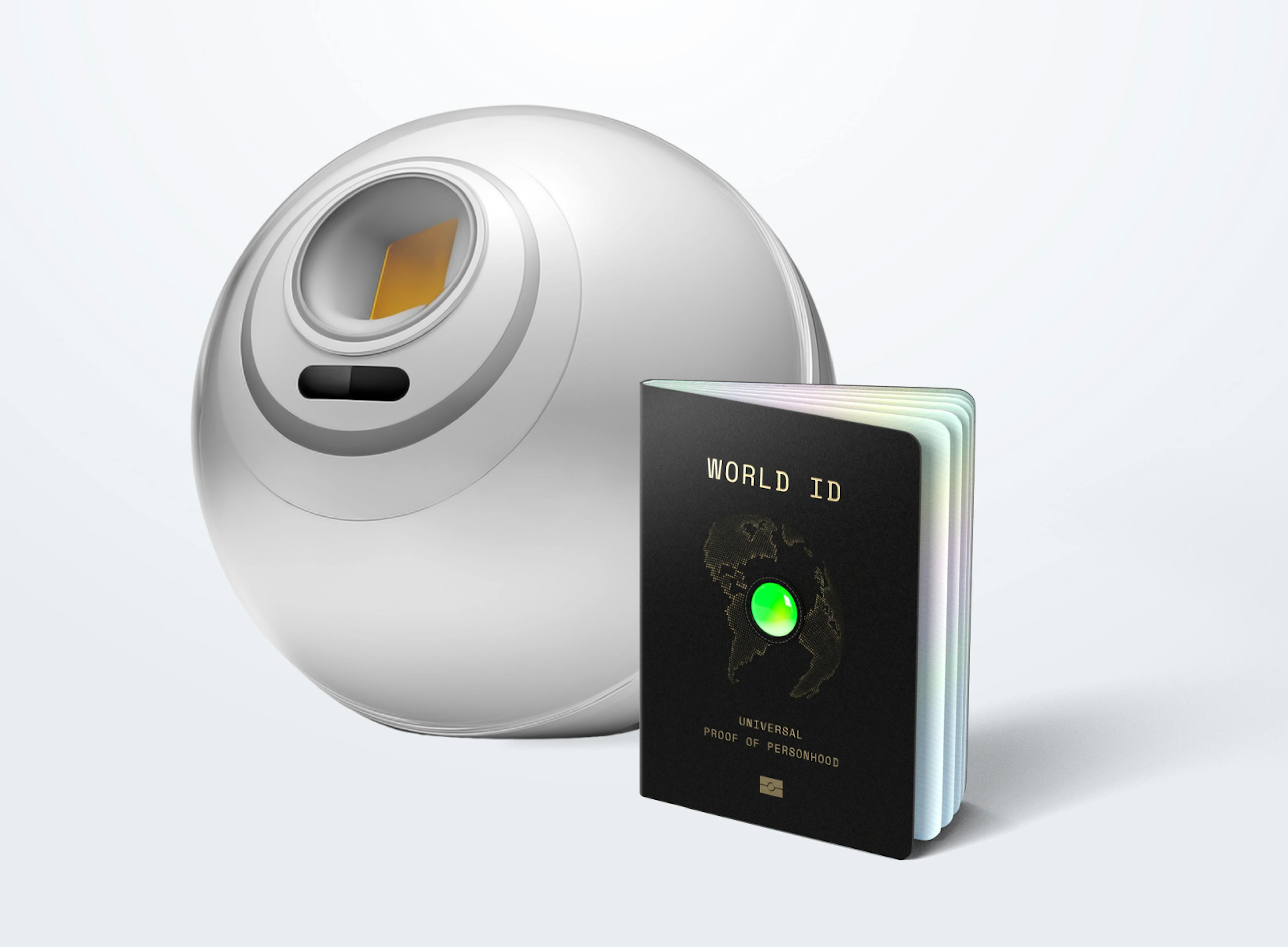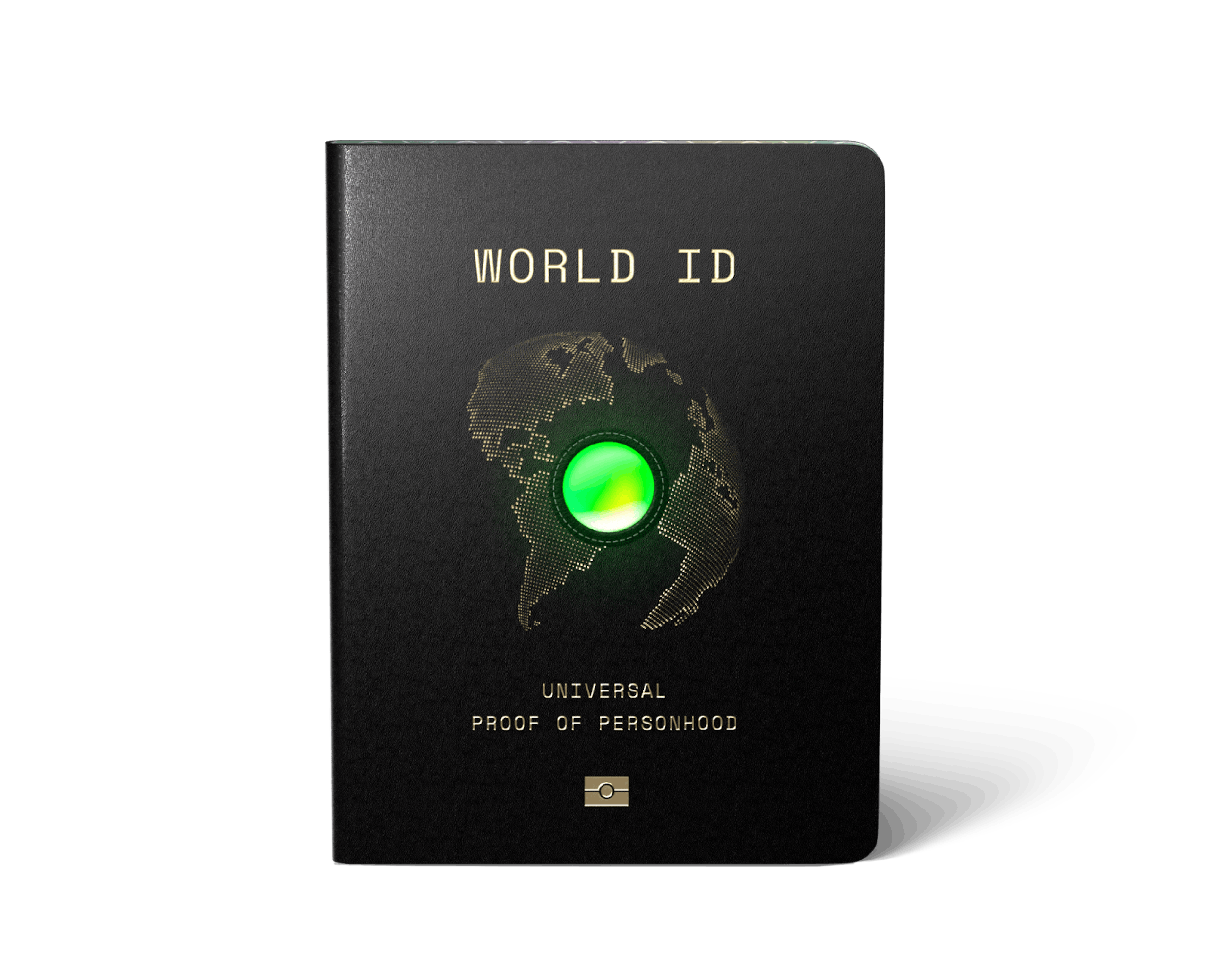
World ID 1.0 was introduced in early 2023 as the fundamental answer to solve proof of personhood in the Age of AI – and to do so in a privacy preserving, inclusive, and open manner. As many online platforms, communities, and governments have learned in the year since, this is an important challenge of our times.
Millions of people across all continents have already verified their World ID with an Orb, including more than 1% of the population of Chile, 1% of Argentina’s, and 2% of Portugal’s.
This is an initial preview of World ID 2.0 – the first major upgrade to the protocol, which will bring Apps, Levels, and a series of core improvements.

Fig. 1
World ID is a digital passport that lets you prove you’re a human online while keeping your identity private.
You can verify your World ID with an Orb, showing you’re a real and unique person.
Introducing World ID Apps
World ID Apps are an easier way of using your World ID on your favorite web, mobile, and onchain services. Applications can now let you verify existing accounts to apply a verification status, like a blue checkmark. They can also optionally enable World ID as a sign in method for a more seamless experience. For added privacy, World ID Apps only have access to a disposable number calculated from your World ID. This means they can provide a consistent experience, but cannot use it to link you to other apps where you used your World ID.
Using this new standard, the community has developed World ID Apps integrations for Reddit, Discord, Minecraft, Shopify, Mercado Libre, and Telegram. You can explore all in the new Worldcoin App Store and directly on World App, the first World ID compatible wallet.
Building World ID Apps is easy with the new Developer Platform. ID Kit has been rebuilt using Wallet Bridge, a new open source bridge that makes connections with apps significantly more reliable. World ID Zero-Knowledge Proofs are now generated about 30% faster on 64 bit devices and up to 24X faster on 32 bit devices. The Developer Portal comes with an updated Simulator to make testing easier, and now supports team accounts.
World ID Levels enable casual and high security apps
In the real world a librarian will simply glance at your student ID to let you in, while a club bouncer will actually check the picture, and airport security might even verify your fingerprints. Levels on World ID 2.0 are designed to accommodate this type of diversity of real world uses. They allow apps to request more simplified or enhanced World ID checks based on their needs.


World ID Device
While only Orb-verified World IDs can provide a strong signal of humanness and uniqueness protection, less strong verification signals can be useful in some scenarios. World ID Device will allow apps to accept World IDs that have only been verified with a trusted mobile device, even if they haven’t yet been verified with an Orb.


World ID Orb
Orbs are optic verification devices that provide a strong signal of humanness and uniqueness. The classic Orb signal introduced in World ID 1.0 allows users to prove that they are currently holding an Orb-verified World ID on a trusted device.


World ID Orb+
To enable even higher security than the classic Orb signal, apps can soon require face authentication when using World ID. The experience is similar to unlocking your phone with your face, and it helps ensure that only the person that was issued the World ID can use it for that specific action. Importantly, thanks to Personal Custody the authentication is performed locally on your device.
Levels expand the range of potential applications, making the protocol more adjustable to the specific needs of apps, and therefore more useful. They also make the protocol even more inclusive by enabling all 4.8 million people with a World ID to participate even before they visit an Orb.
A more private, sovereign, and open protocol
World ID was designed with the beliefs that privacy is a fundamental human right, that individuals should own their identity, and that such a system should be a public good. World ID 1.0 has been described as the most private of its kind, thanks in part to its use of cutting-edge Zero-Knowledge Proof cryptography. In fact, World ID 1.0 already represents 87% of the most common type of ZKPs in the Ethereum ecosystem. World ID lives directly on your device so only you can access, control, or even decide to delete it. And of course, World ID is open source.
World ID 2.0 doubles down on these principles with five core upgrades.
Resetting your World ID
If your World ID ever gets lost or compromised, you will be able to visit a nearby Orb to reset it. This immediately expires your old one, allowing you to verify a new one. Importantly, this does not affect or recover your wallet.
Personal Custody
Your World ID private key already lives locally on your personal device. With the World ID 2.0 upgrade, so will your verification bundle secured with end-to-end encryption ensuring the system is both private and convenient.
Deprecating Data Custody
With the introduction of Personal Custody, optional Data Custody will no longer be offered at the time of your Orb visit. While most people choose not to currently, if you want to contribute to improve the security and inclusivity of the system you will have the ability to opt in at a later time. This ensures you have an opportunity to learn more about the project before making your decision. You can of course always change your mind and easily opt out through World App.
Wallet Bridge
Wallet Bridge is a new way for your wallet to communicate with World ID apps. It’s more reliable, end-to-end encrypted, fully open source, and developers can easily run their own instance.
Expanded OIDC + OAuth support
Sign in with World ID now incorporates user experience improvements, security upgrades and extended support for the OIDC standard. Sign in with World ID is now available for native apps, including app-to-app connection and more secure authentication with Auth Code Flow + PKCE.
Upgrading to World ID 2.0
World ID 2.0 introduces important upgrades to the protocol, responding to community input and taking it beyond the original idea. With changes of this magnitude it is important to give the community more opportunity to participate and developers time to prepare.
The first upgrades – including Apps, the Worldcoin App Store, and Device signal – will be live today, with the rest following gradually in the months ahead. And of course, as an open source protocol everyone is invited to join the conversation on Twitter/X, Telegram, Discord, YouTube and LinkedIn and contribute directly on Github.
We’re excited to see what you build with it.
----
Get your World ID on World App.
Visit the docs to build a World ID App.
Disclaimer
The above content speaks only as of the date indicated. Further, it is subject to risks, uncertainties and assumptions, and so may be incorrect and may change without notice. A full disclaimer can be found in our Terms of Use and Important User Information can be found on our Risks page.




